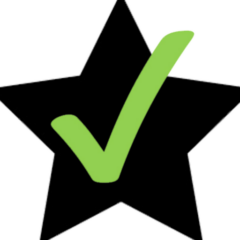Beyond the surface of the internet, shrouded in layers of encryption and anonymity, lies the enigmatic Dark Web. Accessible only through specialized tools like the Tor Browser, this realm sparks both curiosity and concern. Let’s embark on a deeper dive into the intricacies of Tor and shed light on the complex ethical, legal, and societal implications of the Dark Web.
Unveiling the Onion Router: A Tool, Not a Cloak
 The Tor Browser, short for The Onion Router, isn’t a magic cloak of invisibility. Instead, it’s a powerful tool for online anonymity. Its unique architecture anonymizes your activity by routing your internet traffic through a series of volunteer-operated servers, encrypting it multiple times like layers of an onion. Imagine leaving a trail of breadcrumbs that gets scrambled and scattered, making it nearly impossible for anyone to track your steps. This grants several key advantages:
The Tor Browser, short for The Onion Router, isn’t a magic cloak of invisibility. Instead, it’s a powerful tool for online anonymity. Its unique architecture anonymizes your activity by routing your internet traffic through a series of volunteer-operated servers, encrypting it multiple times like layers of an onion. Imagine leaving a trail of breadcrumbs that gets scrambled and scattered, making it nearly impossible for anyone to track your steps. This grants several key advantages:
- Cloaked Identity: No more leaving digital footprints! Your IP address remains hidden, protecting your browsing activity from prying eyes, especially in restrictive regimes or areas with limited freedom of expression.
- Encrypted Messages: Every communication within the Tor network is shielded by layers of encryption, adding an extra layer of security and privacy for whistleblowers, journalists, and activists operating in high-risk environments.
- Hidden Doorways: Access websites with the unique .onion domain extensions, the hidden addresses of the Dark Web. Explore a different web landscape, but remember, anonymity is a double-edged sword.
Demystifying the Dark Web: Not Just a Villain’s Lair
Contrary to popular belief, the Dark Web isn’t inherently a haven for criminals. It’s part of the deep web, websites not indexed by search engines, requiring tools like Tor for access. It hosts a diverse range of content, just like the regular web, but with an extra layer of anonymity. Here’s a deeper look at the duality of the Dark Web:
Light in the Darkness:
- Whistleblowing Platforms: Secure channels for individuals to expose wrongdoing without fear of reprisal, a vital tool for accountability and transparency in oppressive regimes.
- Privacy Havens: Platforms for open discussions on sensitive topics like human rights, offering a space for free expression without censorship.
- Underdog Markets: Facilitating access to censored or restricted goods and services in regions with limited economic freedom or government overreach.
Shadows to Beware:
- Black Market Bazaars: Websites facilitating the exchange of anything from harmless digital goods to illegal items like drugs and weapons, a stark reminder that anonymity can be misused for nefarious purposes.
- Hacking Hideouts: Forums where individuals offer hacking services and stolen data, highlighting the potential dangers lurking in the shadows and the importance of cybersecurity awareness.
- Illegal and Harmful Content: Unfortunately, the Dark Web also harbors illegal and harmful content, such as child exploitation material, emphasizing the need for responsible use and strong legal frameworks to combat such activities.
Navigating with Caution: Responsibility in the Digital Shadows
While the Tor Browser empowers privacy, remember, it’s not an invisibility cloak. Using it responsibly requires taking precautions:
- Software Shield: Regularly update the Tor Browser to patch vulnerabilities and ensure optimal protection.
- Guarded Gates: Never share personal information on the Dark Web and exercise extreme caution when interacting with websites or individuals, as anonymity can mask malicious actors.
- Legal Literacy: Understand the legal implications of accessing and using the Dark Web in your jurisdiction. Laws regarding anonymity and online activity vary greatly, and what’s legal elsewhere might be illegal where you are.
The Crossroads of Privacy, Ethics, and Law: A Balancing Act
The Tor Browser and the Dark Web present a complex landscape of potential and pitfalls. Balancing the right to privacy with ethical considerations and legal frameworks is an ongoing challenge. As technology evolves, navigating these tools responsibly becomes increasingly important in our interconnected digital world. Remember, anonymity is a powerful tool, but like any tool, it can be used for good or ill. Choose wisely, and advocate for responsible policies that safeguard individual rights while protecting against misuse.
